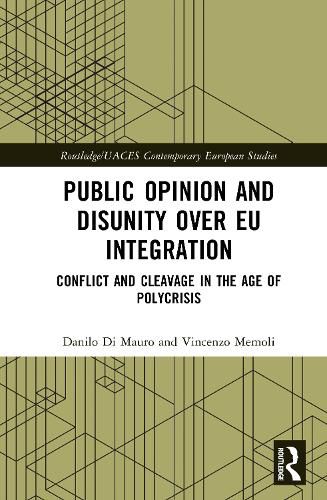Readings Newsletter
Become a Readings Member to make your shopping experience even easier.
Sign in or sign up for free!
You’re not far away from qualifying for FREE standard shipping within Australia
You’ve qualified for FREE standard shipping within Australia
The cart is loading…






This book explores the origins, characteristics, and impact of public support for the European Union (EU) on the process of EU integration.
It examines core questions around the dynamics behind the (dis)integration processes, how multidimensional attitudes toward the EU are interrelated, the dimensions and cleavages of party competition, and the public-political elites link in EU policy-making. By simultaneously applying cleavage and post-functionalist theoretical perspectives, the book observes whether the era of multiple crises has changed support for the EU, creating a more polarized public whose attitudes can constrain, favor, or even stop integration and country membership.
This book is of key interest to scholars and students of global governance, Euroscepticism, populism, public opinion, democracy, and more generally, European/EU studies and European politics.
$9.00 standard shipping within Australia
FREE standard shipping within Australia for orders over $100.00
Express & International shipping calculated at checkout
This book explores the origins, characteristics, and impact of public support for the European Union (EU) on the process of EU integration.
It examines core questions around the dynamics behind the (dis)integration processes, how multidimensional attitudes toward the EU are interrelated, the dimensions and cleavages of party competition, and the public-political elites link in EU policy-making. By simultaneously applying cleavage and post-functionalist theoretical perspectives, the book observes whether the era of multiple crises has changed support for the EU, creating a more polarized public whose attitudes can constrain, favor, or even stop integration and country membership.
This book is of key interest to scholars and students of global governance, Euroscepticism, populism, public opinion, democracy, and more generally, European/EU studies and European politics.